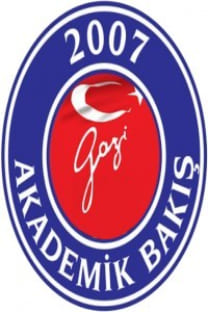One Size Does Not Fit All: An Analysis of US and EU Democracy Promotion in the Western Balkans
Democracy Promotion, Democratization, the United States (US), the European Union (EU)
___
- BALFOUR, Rosa-Corina Stratulat, “The Democratic Transformation of the Balkans” EPC ISSUE PAPER NO. 66. 2011. http://www.epc.eu/documents/ uploads/pub_1363_the_democratic_transformation_of_the_balkans.pdf accessed on 27.10.2014
- BECHEV Dimitar - Svetlozar Andreev, “Top-Down vs. Bottom-Up Aspects of the EU Institution-Building Strategies “in the Western Balkans, Occasional PaperNo. 3/05, South East European Studies Programme, European Studies Centre, University of Oxford, 2005. BEICHELT, Timm, “The Research Field of Democracy Promotion”, Living Reviews in Democracy 3, 2012. BLOMBERG, Franziska, “The ‘Do-No-Harm’ Debate in External Democracy Promotion”, Journal on Ethnopolitics and Minority Issues in Europe 11, No. 3, 2012, p. 8-39. BÖRZEL, Tanja A.-Thomas Risse, “One Size Fits All! EU Policies for the Promotion of Human Rights, Democracy and the Rule of Law,” Prepared for the Workshop on Democracy Promotion, Oct. 4–5, 2004, Center for Development, Democracy, and the Rule of Law, Stanford University. BÖRZEL, Tanja A. - Risse, Thomas, “Venus Approaching Mars? The EU as an Emerging Civilian World Power, Berlin Working Paper on European Integration No. 11, Frei University Berlin, 2009. BÖRZEL, Tanja A., When Europeanization Hits Limited Statehood: The Western Balkans as a Test Case for the Transformative Power of Europe, KFG Working Paper Series, No. 30 September 2011. BRINKLEY, Douglas, “Democratic Enlargement: The Clinton Doctrine”, Foreign Policy 106, 1997, pp. 110–127. BROK, Elmar, “Introductory remarks: the European Union and democracy promotion” Worldwide promotion of democracy: challenges, role and strategy of the European Union Brussels 5–6 June 2007. BROWN, Keith, Evaluating Intervention: Knowledge production and democracy promotion in the Western Balkans, Proposal (with budget omitted) submitted to NCEEER grant competition, 2006. BROWN, Keith, “Do We Know How Yet: Insider Perspectives on International Democracy Promotion in the Western Balkans”, the National Council for Eurasian and East European Research, TITLE VIII PROGRAM, January 26, 2009. CAMPBELL, David, National Deconstruction: Violence, Identity, and Justice in Bosnia, University of Minnesota Press, 1998. CHANDLER, David, “Promoting Democratic Norms? Social Constructivism and the ‘Subjective’ Limits to Liberalism”, Democratization, 20, No. 2: 2013, pp. 215-239. CORCORAN, Paul E., “The Limits of Democratic Theory”. in Democratic Theory and Practice, ed. Graeme Duncan. CUP, Cambridge, 1983, p. 13-25. CAROTHERS, Thomas, “The End of the Transition Paradigm”, Journal of Democracy 13, No. 1, 2002, p.5-21. CAROTHERS, Thomas, “Democracy Assistance: The Question of Strategy” Democratization 4, No. 3, 1997, p. 121-122. CAROTHERS, Thomas, Aiding Democracy Abroad, the Learning Curve. Carnegie Endowment for International Peace, 1999.
- ISSN: 1307-9778
- Yayın Aralığı: 2
- Başlangıç: 2007
- Yayıncı: Hale Şıvgın
Yeni Medya Ve Siyasal Katılım: 15 Temmuz Örneği
Avrupa ve Amerika Birleşik Devletleri Arasındaki İlişkide Dönüşümler (2001-2017)
Uncovering the Party Effect in the US Congress
The Effects of the Second World War on Wheat Production in Turkey: Cobweb Theorem
Amerikan Kongresi’nde Partilerin Etkisi
Dünya Savaşı Sonrasında Sovyet Talepleri ve Türkiye’nin Tepkisi
Birinci Dünya Harbi Sonunda Maraş’ın İtilaf Devletlerince İşgali ve Maraş Savunması
